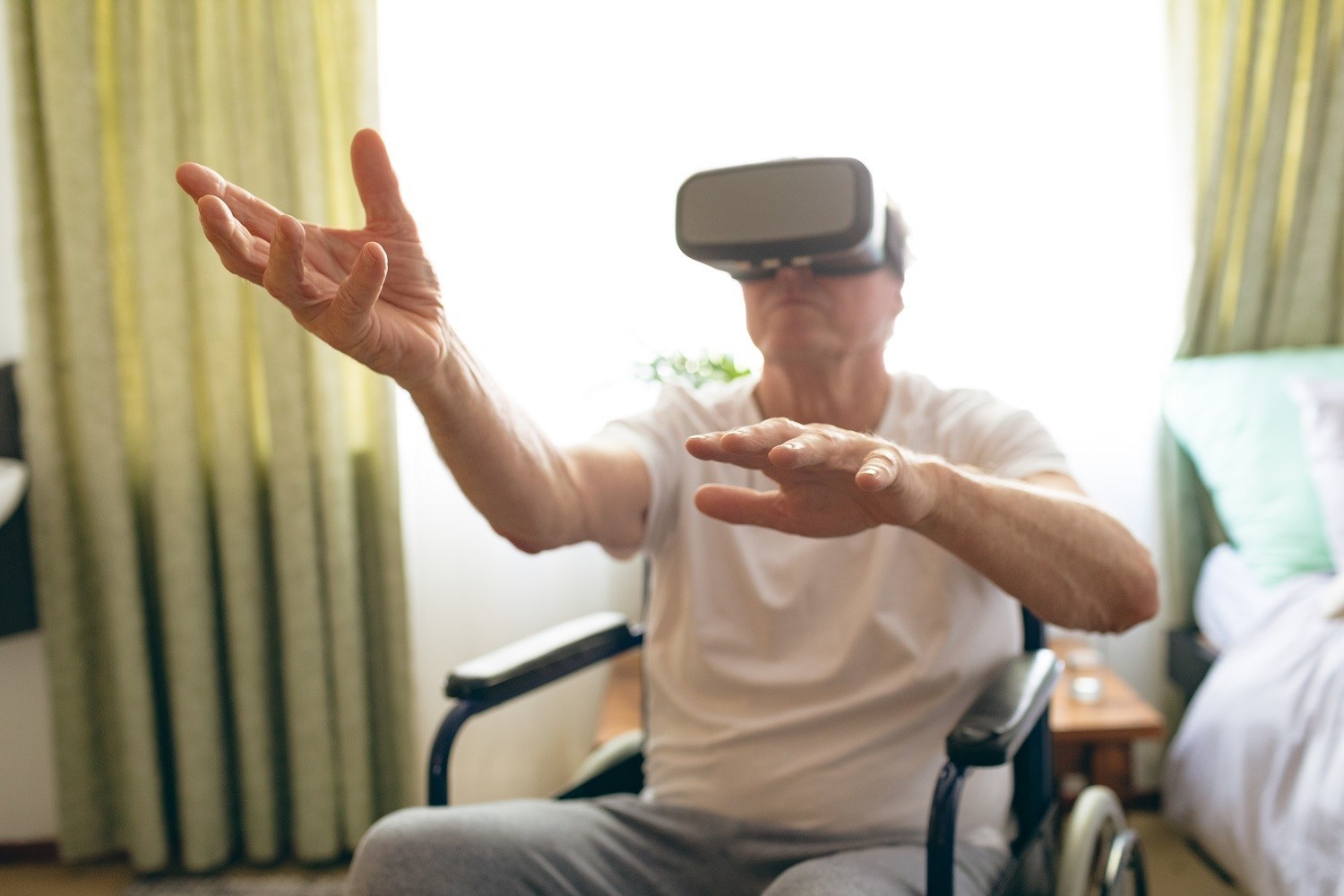Innerva Virtual: VR Solutions for Wellness

After experiencing the events of 2020, it’s hard to deny that technology has an essential role to play in maintaining personal wellness and mental health. After being faced with the particular challenges of the COVID-19 pandemic, we’ve had to rethink the way that we communicate and share space with each other, the way we work, how and why we travel, how we take care of ourselves, and so many other considerations that we previously took for granted.
We’ve also seen that seniors and immunocompromised individuals have been especially affected by this pandemic, which is another major cause for concern, as those populations already tend to face challenges related to their health, and with so much emphasis being put on physical well-being right now, mental health is not getting the consideration that it deserves.
With that in mind, we wanted to turn our focus towards a New Brunswick-based organization that provides unique solutions to the more intricate problems surrounding mental health and wellness.
Innerva Virtual has been providing virtual reality-based solutions to aging adults for years, but in light of the COVID-19 pandemic, we thought it might be interesting to not only talk more in-depth about what they do now, but to also look at the ways in which this technology might be used to serve persons with disabilities, students, vulnerable adults, and other individuals who struggle with their mental health and general wellbeing.
Innerva’s mission is to identify gaps in health services in long-term care and address them using technology to provide quality health services for aging adults across the world, ultimately maintaining and improving their wellness. What that means in practical terms is that Innerva uses virtual reality (VR) technology to provide unique and engrossing experiences that are designed to engage both mind and body, thus providing a greater quality of life to those who may not be able to easily access the outside world.
These experiences, viewed through the lens of the HTC Vive VR headset, can vary from deep sea exploration to skiing, painting on a virtual canvas, slicing fruit with swords, or even sharing your life story with someone who lives across the world through VR chat. Each experience can be customized to the individual’s abilities and preferences, and new apps and experiences are constantly being added, so there’s always something new to explore.
And because this technology encourages intuitive movement, it has the potential to be used as a tool to improve upon and maintain physical wellness, which is especially helpful for individuals who are limited in their options for exercise in the outside world. Moreover, the physical nature of this technology means that there is the potential for physical therapy services such as fall prevention and monitoring, gait balance assessing, cognitive and mobility tracking, etc. to be facilitated remotely without the need for specialists to be located on site.
When it comes to future application of this technology, the possibilities are endless. Right now, Innerva Virtual focuses on long-term care, but this technology has the potential to be used by schools, in the workplace, by OTs, therapists, doctors, speech language pathologists, and more.
To learn more about the virtual reality solutions that Innerva provides, or to discuss future collaborations, please contact Sherry via LinkedIn, Email or click here to visit their website.
*Innerva Virtual was made possible through funding by, and developed in partnership with Centre for Innovation and Research in Aging, Centre for Aging and Brain Health Innovation, York Care Centre, Venn, the New Brunswick Health Research Foundation, and Planet Hatch.
Tags: apps, assistive technology, AT HelpDesk



